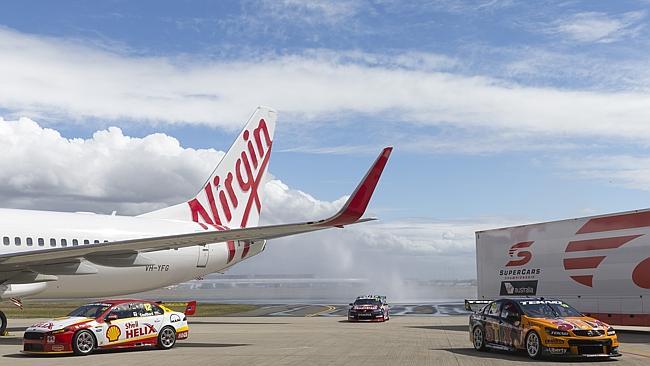AirNZ exit ‘no dampener on airlines’ biofuel plans’
Any exit of Air New Zealand from Virgin Australia won’t dent the two airlines’ plans for a jet biofuel industry.

The potential exit of Air New Zealand from Virgin Australia will have no impact on the two airlines’ commitment to kickstart a local jet biofuel industry.
Last month the two airlines issued a request for information (RFI) to the market to explore the possibility of supporting a local aviation biofuel industry by pledging to buy substantial stocks of the fuel if investors build production facilities to meet demand.
But since that time, Air NZ has triggered a review of its 25.9 per cent stake in the Australian airline, which could see it sell its 914 million shares in Virgin.
Despite the likely exit of Air NZ from the Australian airline, Virgin’s head of sustainability Robert Wood said there was no indication the Kiwi carrier would abandon the process to develop a local biofuel sector.
“I don’t know about the ownership change, but with this procurement exercise we are both full steam ahead,” Mr Wood said.
“This is a genuine effort to stimulate and expedite the development of this industry in our region. We have, along with Air New Zealand, been looking at ways to develop biofuel projects and I think the realisation we came to was that the best way to fast track this was to aggregate our volumes of fuel and put a very strong demand signal into the market.”
Virgin held a closed-door session in Brisbane last week to discuss terms of the RFI with potential applicants.
“It was an opportunity for interested partners to delve deeper and probe Air New Zealand and ourselves on aspects of the RFI in detail so they could sharpen their pencils and get their proposals in order,” Mr Wood said.
Virgin hopes the development of a local aviation biofuel sector will reduce carbon emissions and provide it with a sustainable source of fuel not tied to fluctuating oil prices.
Qantas and its low-cost carrier Jetstar ran biofuel trials in 2012 but did not pursue a formal use of the fuel — derived from used cooking oil — because of cost and a scarcity of supply in Australia.
But Air New Zealand and Virgin hope to change that by committing to buying a large supply should producers be able to manufacture and sell biofuel at competitive prices.
Mr Wood would not reveal the numbers of submissions it has received to its RFI but said they had “exceeded expectations.”
“We’ve been really encouraged by the level of interest both from here in Australia and New Zealand … and the strong international interest,” he said.
“If they all put submissions in, we would be very busy for a number of months reviewing them.
“Projects like this need robust supply lines. So we’ve had robust interest not just from the companies that can produce the fuel but also engineering firms, carbon traders and suppliers.”
The RFI is seeking the production of 200 million litres of biofuel from 2020. It also sets broad terms that interested suppliers must meet, including that any biofuel must be competitively priced compared to fossil-based jet fuel, be available in significant quantities, meet stringent testing and certification requirements and be produced in accordance with internationally recognised sustainability criteria.
Interested parties have until May 30 to respond to the RFI.
“There isn’t a functioning market for these fuels yet. So we are genuinely trying to understand how investment-ready the market is,” Mr Wood said.



To join the conversation, please log in. Don't have an account? Register
Join the conversation, you are commenting as Logout